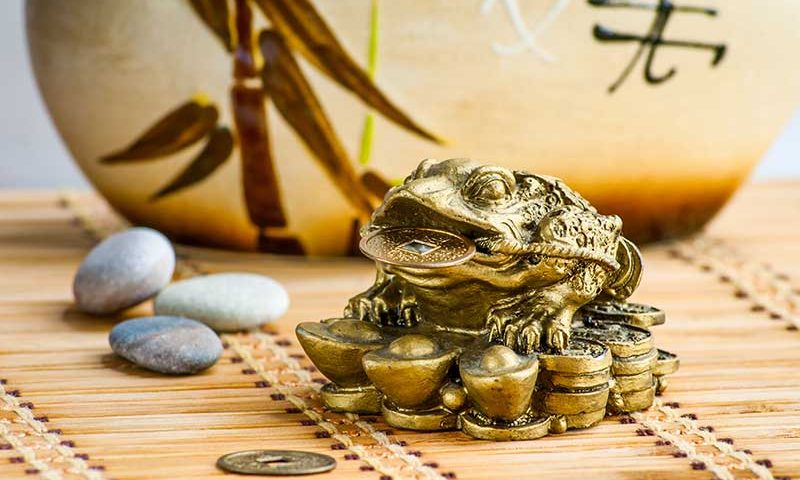
The 7 chakras and how to open them
9th June 2017
What is Ayurveda? And how it relates to Yoga?
16th June 2017What is Feng Shui and the tools it uses to invite positive energy

The History of Feng Shui | Ana Herat Blog
The History of Feng Shui
What is Feng Shui? It’s a question hundreds of people ask every day; however, the answer is complex.
Feng Shui, sometimes referred to as Fengshui, translates from Chinese as ‘wind’ and ‘water’ and is an ancient Chinese art and science that’s origins date back more than 3,000 years to Taoism.
Feng Shui is an in-depth philosophy that, in the past, was shaped by traditions passed down from generation to generation; however, the underlining principle embraces the elements and is said to encourage good fortune. The belief that energy, or ‘chi’, flows through space, including homes, workplaces, and outside areas such as gardens, is the basis of Feng Shui. The Chinese believe if people adhere to the principles of Feng Shui, it will bring those living or working in a certain space good health and positivity in life, including a successful career and life fulfillment, for instance.
For centuries, Chinese architects have designed buildings according to the principles of Feng Shui and, even now, in modern China, the principles of Feng Shui continue to play an important role.
The positive energy that Feng Shui brings hasn’t gone unrecognised in the western world, either, as thousands of people across Europe and America especially now embrace Feng Shui elements in their homes, too, which the movement of Chinese traditionalists around the world supports.
Tools used in Feng Shui
To understand What is Feng Shui? you must first understand the fundamental teachings and principles of Feng Shui. Amongst other things, the teaching of Feng Shui embrace the theories of Ying & Yang, as well as the five Feng Shui elements. There are tools you need to embrace Feng Shui entirely, too.
The Bagua
A segmented octagon that contains eight symbols, the Bagua is a sort of compass that covers the key areas you should create in the home. The different points of the Bagua include:
- Career (North)
- Spiritual Growth (North Ease)
- Health (East)
- Money (South East)
- Fame (South)
- Love & Marriage (South West)
- Creativity (West)
- Helpful People (North West)
Providing you follow the above guidelines for the different areas of your home, you have a solid foundation on which to build good Feng Shui, ensuring prosperity and good health.
Luo-Pan
A more extensive form of compass, the Luo-Pan, also referred to simply as the Feng Shui compass, is a bowl-like compass that includes many rings that reveal further information about a room, building, or garden. Typically, Chinese traditionalists and architects only use the Luo-Pan.
Usually, a basic understanding of the Bagua is enough to create good Feng Shui in the home.
How to Create Good Feng Shui in Your Home
If you’re wondering What is Feng Shui? it’s likely you’re also looking for ways to embrace the principles of Feng Shui in your home with the hope that it will bring you happiness and prosperity in life.
To fully understand Feng Shui, it takes years of research; however, there are an array of ways you can adapt your home or workplace to enhance its Feng Shui, including:
Embrace Minimalism
The first step to good Feng Shui is to de-clutter, getting rid of anything you do not need, by which I mean things you do not use frequently. In all cases, having a clean and clutter-free home will improve your standard of living, but it will also help to give the energy in your home an uninterrupted path.
Improve Air Quality
Clean air is essential to good Feng Shui in your home. Consider adding air-purifying plants such as spider plants and peace lilies to your home to keep the air fresh and the energy pure. Also, remember to open your windows every day to allow clean air to flow through your home.
More Natural Light
Everyone likes a light home and floods of natural light benefit your home’s Feng Shui, too. Always open your blinds and curtains to allow natural light to sweep the space.
Don’t Forget the Bagua
As mentioned previously, the Bagua asks that you define the energy map of your home which means defining different areas for varying purposes, including having a career space, health space, and so on.
Remember the Five Feng Shui Elements
For a home with balanced energy and good Feng Shui, you must embrace the five Feng Shui elements. For instance, to improve health, add wooden items to the south-east of your home and, if it’s fame and recognition you seek, add fire elements to the south. Elements of fire can include something as simple as painting the room at the south-end of your home in rich red and orange tones, for instance.
Build on your Birth Element
Feng Shui includes various birth elements determined by the month you were born. When improving the Feng Shui in your home, find out your birth element and enhance areas in your home to support it. For instance, if your birth element is water, you can add shades of blue and green to your home as well as decorative features such as a water fountain in your garden and fish tank in your kitchen.
Regardless of whether you’re looking to transform your life or simply give yourself the best chance of succeeding in the future, Feng Shui is a wonderful teaching to embrace that not only brings positive energy and prosperity into your home and life, but also helps you to live a simple, clutter-free life. All the principles Feng Shui is bound to will improve your quality of living, too – after all, increasing the amount of natural light and bettering the quality of the air in your home makes good sense, too.
If you’re unable to implement all the above Feng Shui changes in your home immediately, do it gradually and begin identifying the different areas and elements in your home so you can work towards a better future for you and your family, benefiting your career, finances, health, and relationships along the way. When you embrace Feng Shui, anything is possible.

